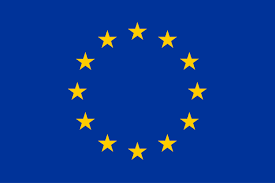Just over half of West of England firms are either ‘negative’ or ‘very negative’ about the UK leaving the single market and customs union, according to the latest survey by the region’s largest business organisation.
Released to coincide with Wednesday’s triggering of Article 50, the results of the Business West survey reveal a widespread dissatisfaction with the government’s plans for a future outside the European Union. 
Just 14% and 19% respectively view Britain’s potential exit from the customs union and single market as ‘positive’ or ‘very positive’.
The survey results are based on a sample of 419 small and medium-sized businesses in Bristol, Bath, Gloucestershire, Swindon and Wiltshire.
They provide an exclusive snapshot of West business sentiment and activity in the immediate run-up to the triggering of Article 50, which marks the beginning of the formal process of leaving the EU.
Business West, which runs Bristol Chamber of Commerce and the Bristol Initiative, said the prospect of leaving the single market and customs union was felt particularly keenly by exporters.
It highlighted what it called “a raft of alarming concerns” in the survey responses, including:
- Paperwork. 36% of respondents and 57% of exporters believe the impact will be ‘negative’ or ‘very negative’, compared with 10% who think the impact will be ‘positive’ or ‘very positive’
- Regulation & compliance. 31% of respondents and 41% of exporters believe the impact will be ‘negative’ or ‘very negative’ in this regard, compared with 15% who think it will be ‘positive’ or ‘very positive
- Tariffs. 38% of respondents and 47% of exporters believe the impact on tariffs will be ‘negative’ or ‘very negative’ for their operations, compared with 9% who think the impact will be ‘positive’ or ‘very positive’.
The survey results show deteriorating trust in the ability of the government to deliver a ‘smooth Brexit’ compared to the last Business West survey conducted several months after last June’s EU referendum.
Despite a series of government moves to allay fears that it can deliver a workable deal for businesses, confidence in the government’s ability to do so declined in the six months to March 2017, with levels of ‘moderate’ to ‘strong’ uncertainty reported by businesses on the rise in some areas, said Business West.
Exporters report much higher levels of uncertainty than non-exporting businesses – demonstrated by the fact that uncertainty was rated as ‘moderate’ or ‘strong’ by up to 71% of businesses selling overseas.
Despite this, just 15.4% are taking steps to prepare for life after the EU, even as the formal negotiations following Article 50 get underway.
Some businesses said they would feel in a state of limbo until the shape of the UK’s Brexit deal becomes clearer in mid-2018. Business West said this showed the need for greater information and support from the government in the intervening period.
Others firms taking part in the survey felt that they simply could not afford to put off making important business and planning decisions any longer due to the timings of negotiations. In rare cases, businesses thought that they would be forced into taking even more drastic measures.
Business West international trade director James Monk said: “We fully recognise that South West businesses are finding it incredibly difficult to plan for a future outside of the EU.
“Never has the maxim ‘fail to prepare, prepare to fail’ ever been as relevant to businesses as it is now, and exiting the EU may well have a significant impact on exporters.
“But at the moment the pound is weak and there are limited trade restrictions on trading with Europe, so now would be a good time to start.
“The good news for businesses in the South West is that help and support is on hand from Business West on all aspects of international trade.
“Over the next two years we will continue to work with many government departments – Department for International Trade, HMRC, Department for Exiting the EU – as well as the World Trade Organisation and International Chambers of Commerce.
“In this way we will be able to advise businesses on possible trading scenarios, helping to guide them as information becomes available – sifting the fact from the fake news.”
Business West represents more than 21,000 businesses across the South West through its network of chambers of commerce and other bodies such as the Bristol and Swindon & Wiltshire initiatives.
A poll it conducted of 700 firms across Bristol, Bath, Gloucestershire, Swindon and Wiltshire ahead of the referendum showed that 62% of business people planned to vote to remain in the EU, compared to 22% who would vote to leave – a ratio of almost three to one.





























